My year 2019 in books
[Vikram Mandyam] / 2019-12-31

I’ve often felt that the dreaded drive to office is a massive waste of human potential. I am thankful for a job that allows me to carpool, so I can spend this time reading. For me, the greatest joy in reading comes from a sensation of time-dilation and flow.
The 28 books I read this year
This year has been a good one for my reading. I set my highest Goodreads target yet, and beat it by making it to 28 (coincidentally, the atomic mass of silicon, the element that shaped the industry I work in). Some of these books have truly been life-changing — hence this blogpost.
The books that I read this year fell neatly into three categories — the get-me-good-at-my-job variety, a ton of self-help literature, and some fun, fast-paced fiction.
Get-me-good-at-my-job
Hackers & Painters by Paul Graham
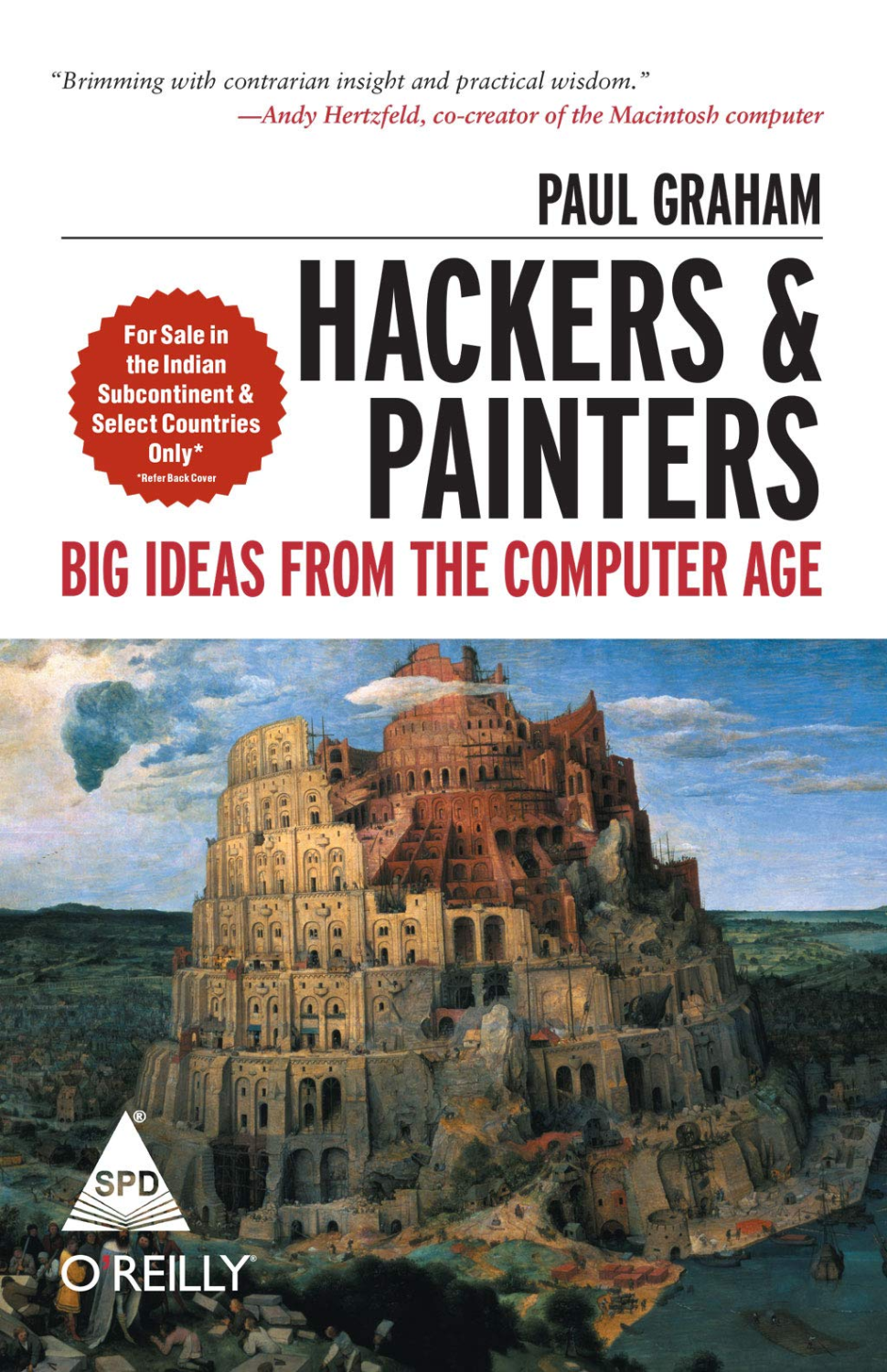
The book explains to the layman what goes on in the universe of computers. However, I think it is far more valuable for people within the universe of computers. The author talks about the makers of society and how “Hackers” and “Painters” are cut from the same cloth.
To the popular press, “hacker” means someone who breaks into computers. Among programmers it means a good programmer. But the two meanings are connected. To programmers, “hacker” connotes mastery in the most literal sense: someone who can make a computer do what he wants—whether the computer wants to or not.
‐ Paul Graham
There is a great deal about the nature of code & complexity of software. The author talks at length about LISP — the reason I read this book! In fact, all through the book, the author’s respect for nerd in chief, a.k.a. alpha nerd a.k.a. John McCarthy (creator of LISP programming language) is obvious. After having gotten big-time into Emacs (former VIMmer here), I had my first taste of LISP in the form of eLISP or emacs LISP. I believe every programmer should have a work-language and a language that they loves to use when they moonlight as a Hacker! For me, LISP is fast becoming this language.
Architecting for Scale by Lee Atchison
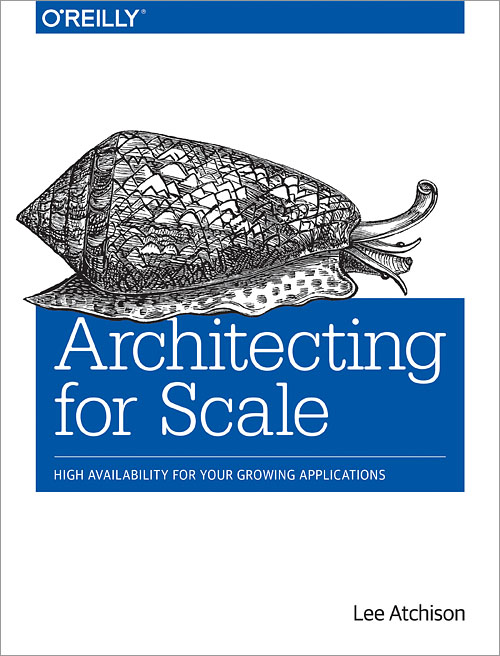
The author offers a fantastic explanation of availability from the perspective of micro-services. The caveats around availability calculation make for some “aha” moments. The risk management chapters are an exceptional read for any manager — but they highlight the need for an engineer to wear the risk management hat as well. This is because, as more complex software is built, a lot of decisions made are nothing more than tradeoffs. The cloud services chapters focused on AWS rather than Azure. Since my primary cloud of choice these days is Azure, I skipped these chapters.
Numsense! Data science for the layman by Annalyn Ng
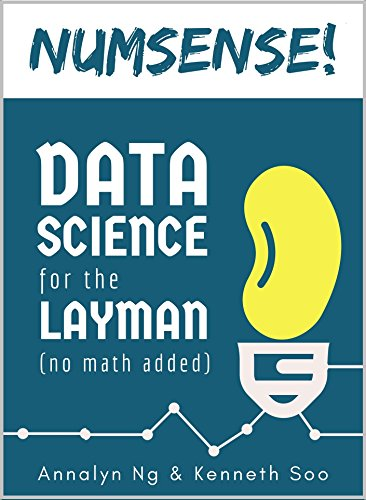
Data science is intimidating for anyone looking to get in. The math is scary and the implementation is usually abstracted away in a black box. Which is why this book is truly a gift. It shows you the data landscape very clearly while keeping away from the swirling waves of details. Filled with a bunch of visuals, it is easy to understand. But don’t be misled by its simplicity — this book does not water down any content. It still tells you everything you need to know!
…and the rest!
- No alt text provided for this image
- Kubernetes by Kelsey Hightower
- Docker In Action by Jeff Nickoloff
- The Devops Handbook by Gene Kim
- Devops Adoption Playbook by Sanjeev Sharma
- Pro Power BI Architecture by Reza Rad
Someone once told me that an engineer needs to be like a surfer, always riding the highest wave — but also keep a lookout for the next highest wave, because the current wave could die down anytime. I read the above books in an effort to stay atop the wave in 2019!
Self-help
Happiness at Work by Srikumar Rao
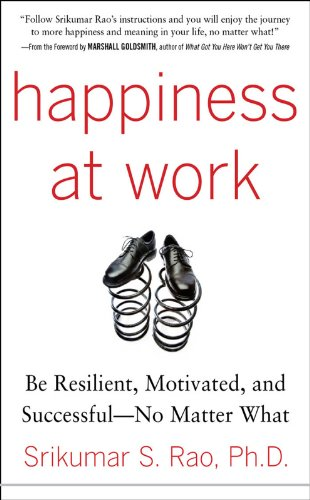
I stumbled upon Dr. Srikumar Rao through some youtube videos of a talk he gave at the Mindvalley institute. This led me to pick up his book and I loved it. Cliche title aside, he explains interesting concepts such as mental models/chatter, the theory of a benevolent universe, and investing in the process rather than the outcome. It’s no wonder the subject he teaches at university is the only one with an alumni association of its own!
Do you feel stuck in any part of your life? If it seems as if you are swimming through molasses and nothing seems to be going right, then assuredly one or more of your mental models are not serving you well. ‐ Dr. Srikumar Rao
Here is the link to the talk -
Losing my Virginity by Richard Branson
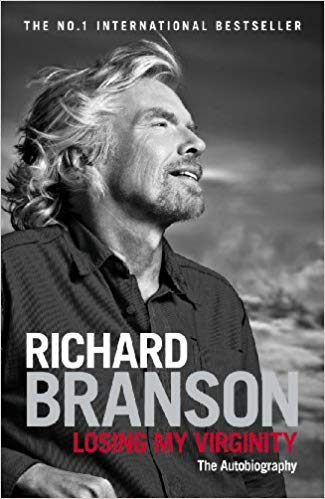
Screw it.
Let’s do it.
‐ Richard Branson
When you read the autobiography of an entrepreneur of Richard’s reputation, you expect the book to teach you business. Instead, you get a business version of the movie “Point Break” (the original one, the good one, the one with Keanu Reeves).
This is a book that you should read to learn how to have fun while working hard. I went in expecting entrepreneurial advice, but came out thinking — I need more fun in my life.
Atomic habits by James Clear
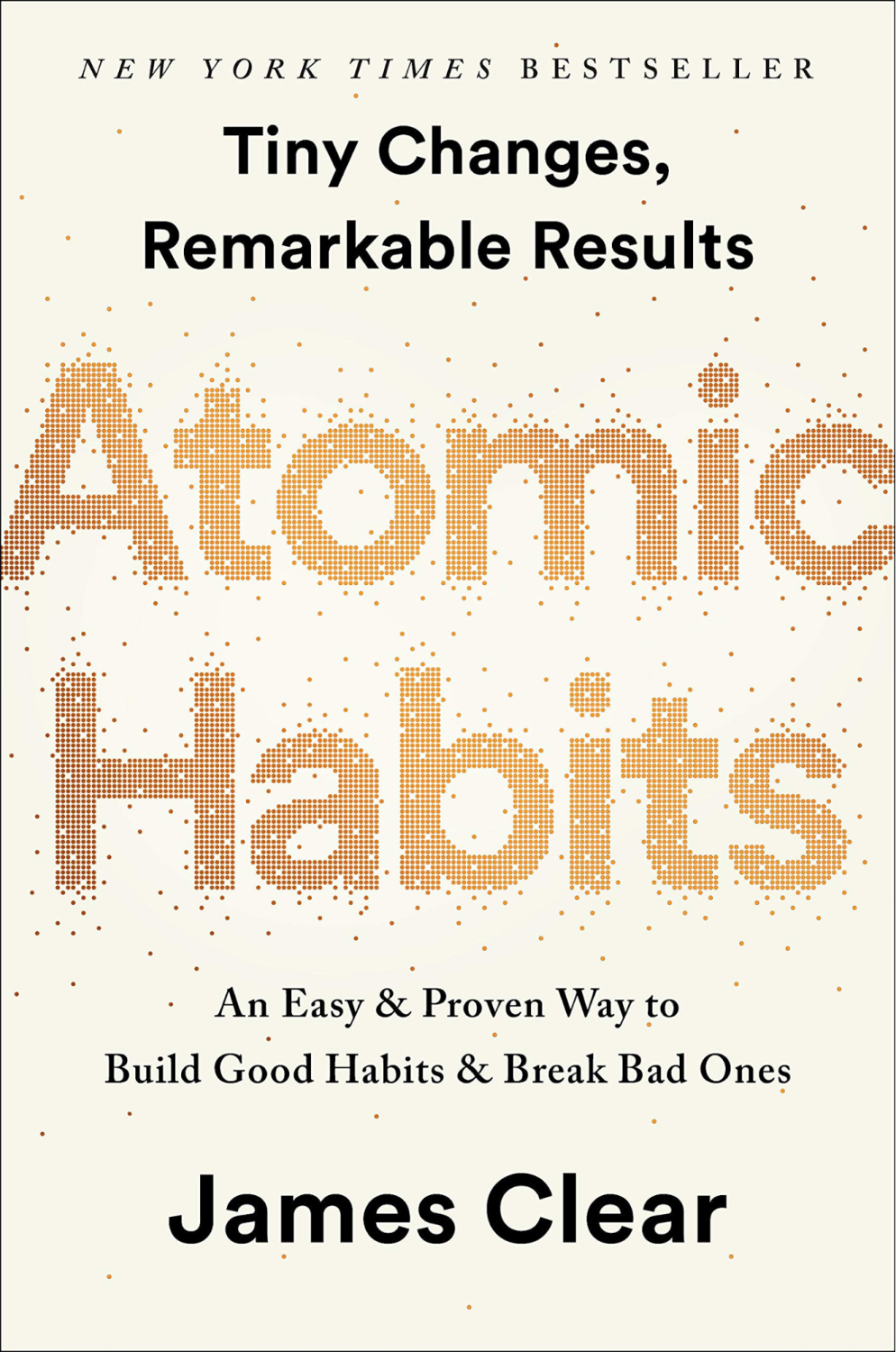
The crux of this book is that the best way to form a habit is to make it part of your identity. How do you do that? By starting small and staying consistent, says the author. “Read 30 books in a year” should be brought down to “Read 5 minutes every day” and then increased to “Read 30 pages a day.”
In a world filled with airport-shelf-self-help books, whose content can be expressed in a blog post, but is often expanded to 300 pages, this book by James Clear stands out from the rest.
There are self-help books that make for a pleasant read. And then there are those that have the potential to change to your life. I believe this one is one of the latter. Apart from the book, I really like the “3 ideas, 2 quotes, 1 question” newsletter he sends out every Thursday.
…and some more!
- Inner Engineering by Sadhguru
- Zen Mind, Beginner’s Mind by Shunryu Suzuki
- The Melting Point by Christian Marcolli
- Daring Greatly by Brené Brown
- The Subtle Art Of Not Giving A F*ck by Mark Manson
- The Code Of The Extraordinary Mind by Vishen Lakhiani
- The Brain Heart Link by Robert Wayfair
- Win Your Inner Battles by Darius Foroux
- Discipline Equals Freedom by Jocko Willink
These books have taught me to handle my brain in a better way. The critical lesson I’ve distilled from many of these books is that I am not my thoughts. That thoughts are bubbles that come and go, and that there is no need to react to each thought. I was into meditation before, but these books have further instilled in me the need to meditate, work out, eat healthy food and sleep well every day.
The Fun Reads
The House of Silk by Anthony Horowitz
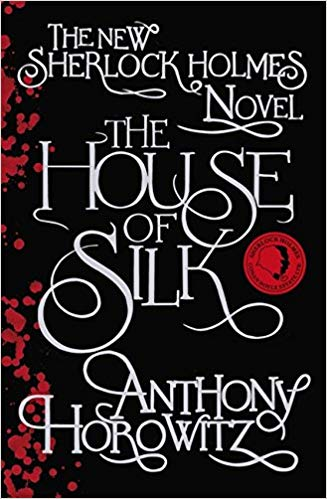
In my hankering for pulp fiction, I stumble upon some interesting detective novels once in a while. This one is a Sherlock Holmes novel, not written by Sir Arthur Conan Doyle. Anthony Horowitz lives up to every Holmesian expectation — which is already very high, thanks to the excellent Sherlock TV series, the movies, and of course, Sir Doyle’s canon work.
The silent patient by Alex Michaelides
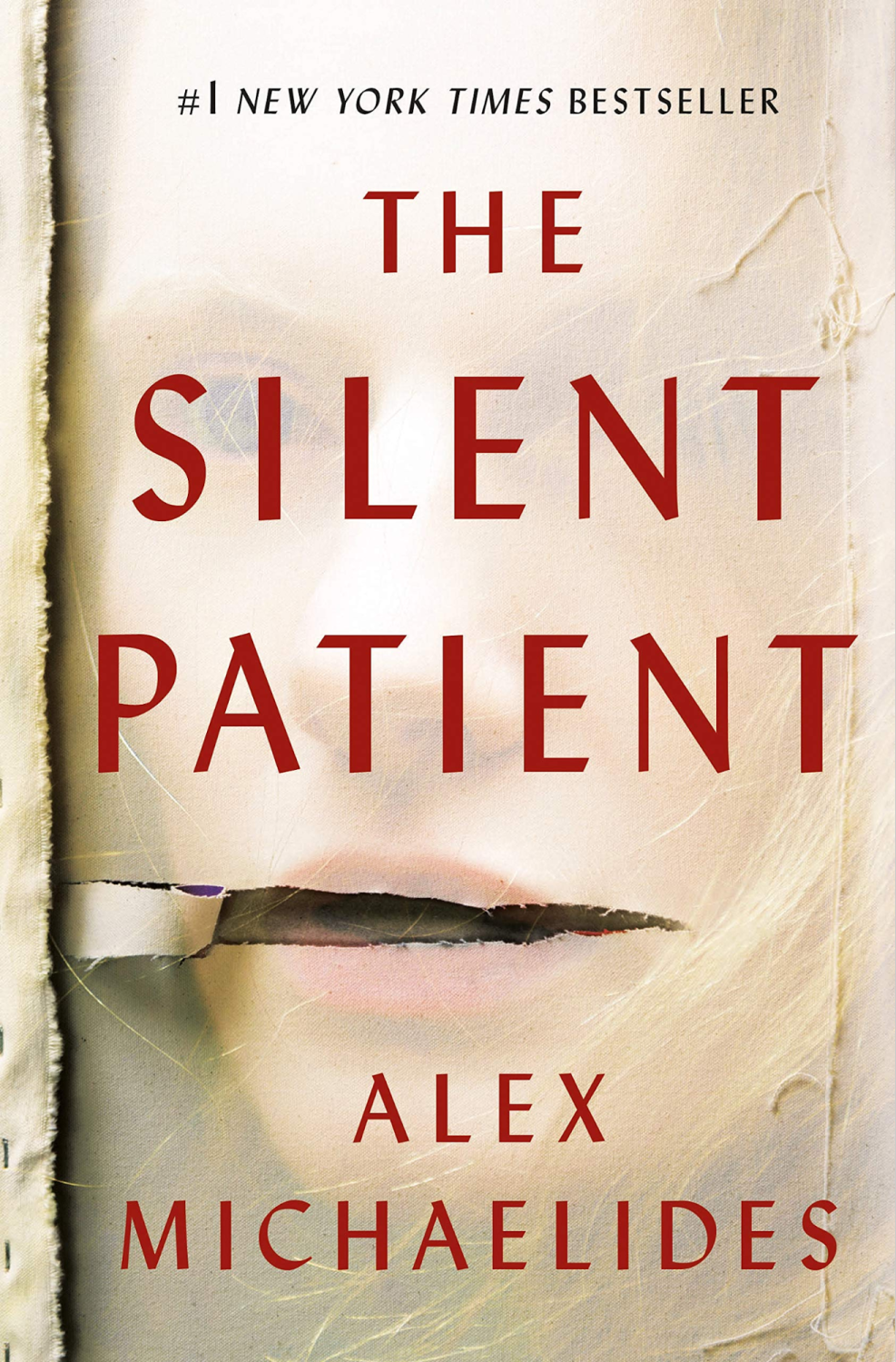
I’m new to psychological thrillers, and this book took me by surprise. The mind-blowing twist in the end and the fast pace make for one very thrilling read. It is the author’s debut novel and it has jumped straight to the top of every list on Goodreads. The book of the year for me!
…and some guilty pleasures
- Black Site by Dalton Fury
- The Afghan by Frederick Forsyth
- The Debt Collector by Jon Mills
- The Black Echo by Michael Connelly
- The Protocol by J. Robert Kennedy
- Brass Monkey by J. Robert Kennedy
Something has gone gravely wrong — it has to be righted. It falls squarely upon the protagonist, who has been betrayed, has undergone a lot of pain, has sacrificed blood, sweat & tears, is broken down, but still comes back and kicks a$$. You get the drift! I am a sucker for redemption-based action novels.
An honorary mention for the one book I wasn’t able to finish
- 11/22/63 by Stephen King.
I found this book voluminous and difficult to get through. I stopped reading midway, but I haven’t given up. I think the habit of reading compounds. The more you read, the more complex material you can read and comprehend. Someday soon, I hope to be able to read books above my current reading level.
In closing
The best books are the ones that you go back to again and again, and here are the books that will make it to my to-read-again pile.
- The Silent Patient by Alex Michaelides
- Happiness At Work by Srikumar Rao
- Hackers & Painters by Paul Graham
I’m now working on my 2020 to-read list. If you have any recommendations for me, do drop a comment!